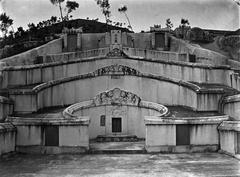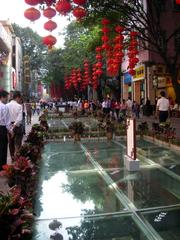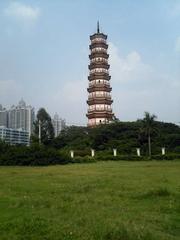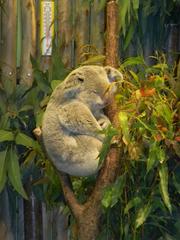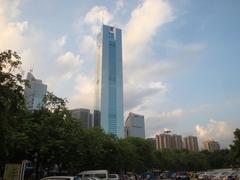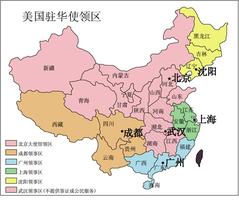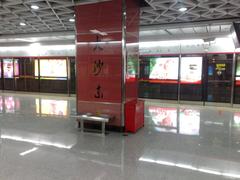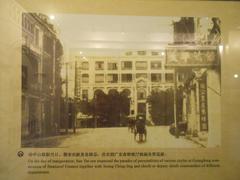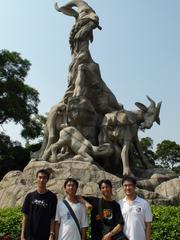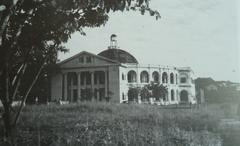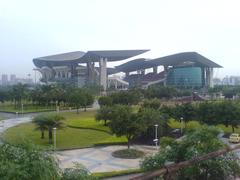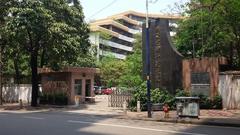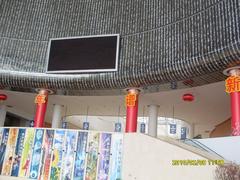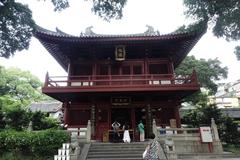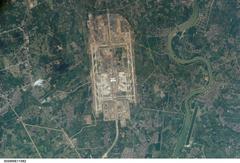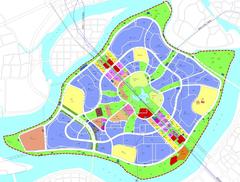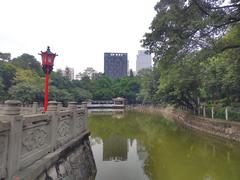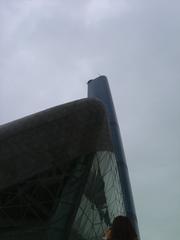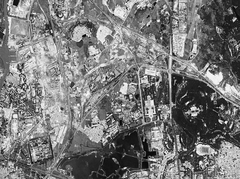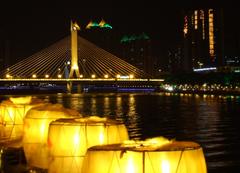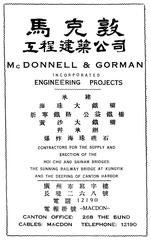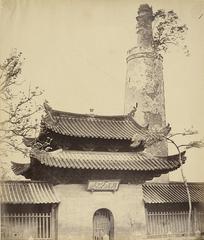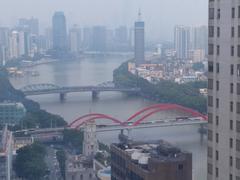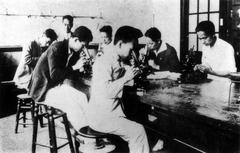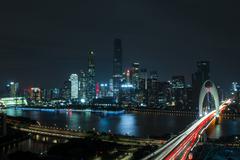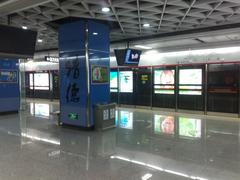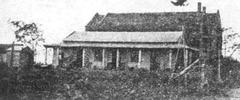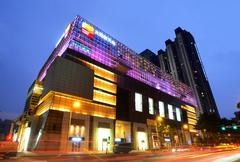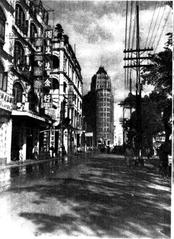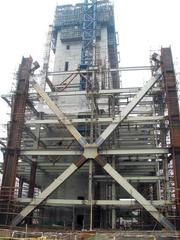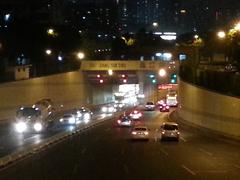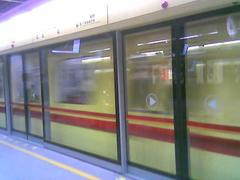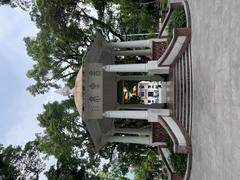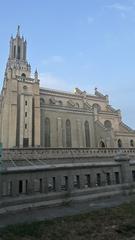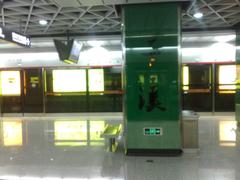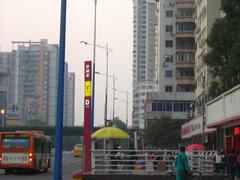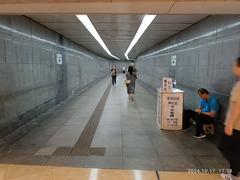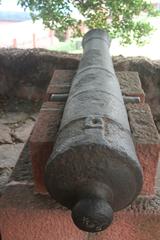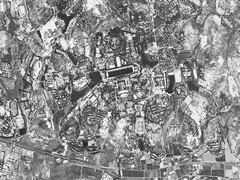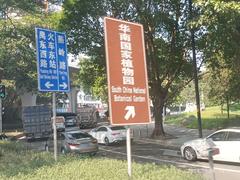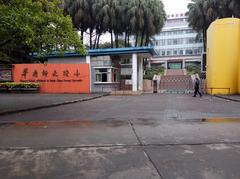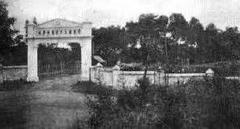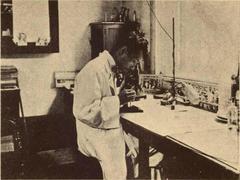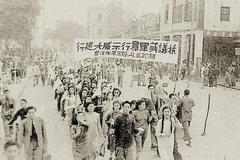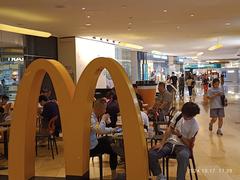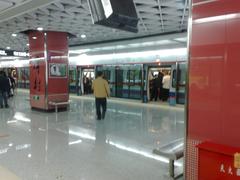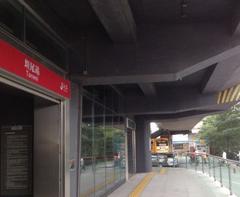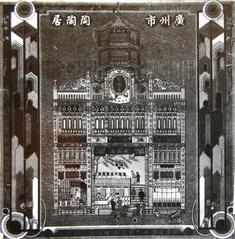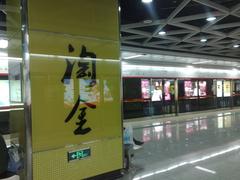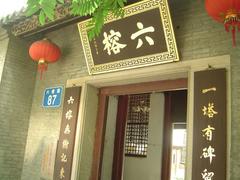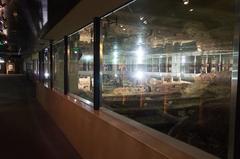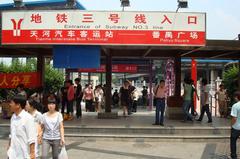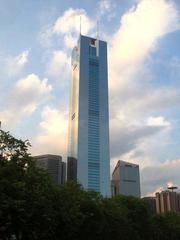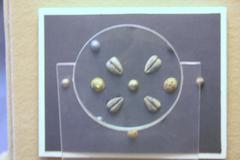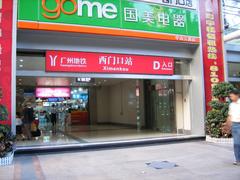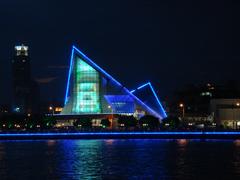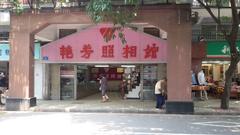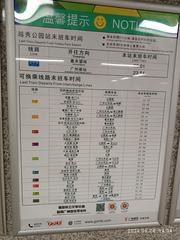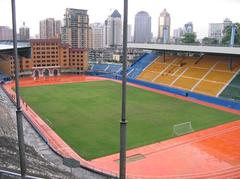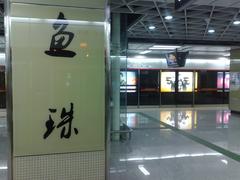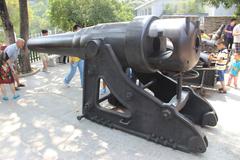Wenquan Guangzhou Visiting Hours, Tickets, and Historical Site Guide
Date: 03/07/2025
Introduction to Wenquan Historical Site in Guangzhou
Nestled in the picturesque Conghua District of Guangzhou, Wenquan (温泉)—which translates to “hot springs”—is a treasured destination where natural geothermal wonders seamlessly blend with rich cultural heritage and modern wellness tourism. With a history stretching over two millennia to the Han Dynasty, these hot springs have long been celebrated for their therapeutic benefits and their central role in Lingnan culture, a defining feature of the region’s identity (Rachel Meets China). Today, Wenquan boasts more than 80 resorts with over 6,000 rooms, offering experiences from luxurious spa treatments to traditional medicinal therapies, communal bathing, and lively cultural festivals (Wikipedia).
Beyond the rejuvenating waters, Wenquan’s verdant forests, abundant biodiversity, and flourishing fruit orchards make it a prime ecological haven within the Guangzhou metropolitan area (Chinawiki). Visitors can enjoy outdoor activities like hiking, cycling, and fruit picking, while exploring local villages that preserve vibrant Lingnan customs and architectural traditions. This unique combination of natural beauty, cultural practices, and wellness amenities makes Wenquan a perfect retreat for relaxation, cultural enrichment, and authentic local experiences.
This comprehensive guide provides detailed information on Wenquan’s historical and cultural context, practical visitor information (including visiting hours and ticketing), ecological attractions, travel tips, and nearby historical sites. Whether planning a day trip or an extended stay, prospective visitors will find key insights to enhance their journey to this remarkable hot spring sanctuary in Guangzhou (China Discovery).
Table of Contents
- Introduction
- Historical Context of Wenquan in Guangzhou
- Significance of Wenquan in Guangzhou
- Essential Visitor Information
- Explore Wenquan’s Ecological and Cultural Attractions
- Cultural and Social Landscape
- Nearby Attractions
- Travel Tips for First-Time Visitors
- Frequently Asked Questions (FAQ)
- Conclusion and Call to Action
- Sources
Wenquan’s Historical and Cultural Context
Origins and Development
The term “Wenquan” means “hot spring” in Chinese, encompassing both the natural geothermal phenomena and the bathing culture developed around them. In Guangzhou, Wenquan culture is rooted in traditions of health, leisure, and social gathering. The use of hot springs in China dates back over 2,000 years, with evidence from the Han Dynasty indicating their use for both medicinal and recreational purposes. The region’s subtropical climate and geology foster the natural hot springs, making them a centerpiece of local culture (Rachel Meets China).
Wenquan’s Place in Guangzhou’s Historical Landscape
Guangzhou’s growth—from its origins as Panyu in the Qin Dynasty to a cosmopolitan metropolis—has been shaped by its natural resources. Hot springs have long attracted merchants, travelers, and officials seeking healing and relaxation. During the Tang and Song dynasties, they became especially popular among scholars and government officials. In recent decades, economic reforms and increased tourism have transformed Wenquan into a modern wellness destination, blending ancient traditions with contemporary luxury (China Discovery).
The Significance of Wenquan
Cultural and Social Importance
Wenquan hot springs are more than a leisure pursuit; they are integral to local social rituals that emphasize relaxation, community, and holistic well-being. Communal bathing, a tradition passed down through generations, fosters strong connections among families, friends, and colleagues. Local resorts highlight Lingnan culture through architecture, cuisine, and hospitality, immersing visitors in the region’s unique heritage (Rachel Meets China).
Economic and Tourism Impact
Wenquan resorts are a key driver of the local economy, attracting wellness tourists, families, and business travelers. The majority of prominent resorts are located in scenic suburban areas like Conghua District, offering tranquil escapes with easy access from Guangzhou’s urban center (China Discovery).
Essential Visitor Information
Visiting Hours and Ticketing
- Hours: Most Wenquan hot spring resorts operate from 8:00 AM to 10:00 PM daily, although some luxury resorts may offer extended or 24-hour access.
- Ticket Prices: Entry fees typically range from RMB 100 to 500 per person, depending on amenities and season. Prices may be higher for private suites or spa packages.
- Booking: Tickets can be purchased onsite or online. Advance booking is highly recommended during weekends and holidays to avoid long waits.
Wenquan Experiences
- Pools: A variety of indoor and outdoor pools with different temperatures and mineral compositions.
- Private/Public Baths: Options for communal or private bathing.
- Wellness Services: Massages, scrubs, aromatherapy, and traditional Chinese medicine treatments.
- Dining: Many resorts include buffet meals, snacks, and beverages in the entry fee (Rachel Meets China).
Practical Tips and Etiquette
- Locker Rooms: Gender-segregated, with toiletries and towels provided.
- Lounge Wear: Provided, but sizes may be limited; bring your own if preferred.
- Pool Rules: Some pools are mixed-gender, others segregated; check resort policies.
- Health: Stay hydrated and consult a doctor if you have medical concerns.
- Etiquette: Shower before entering pools; swimwear is usually required; quiet conversation is appreciated; always ask before taking photos.
Transportation and Accessibility
- Getting There: Wenquan is about 1–1.5 hours by car from Guangzhou city center. Bus, taxi, and ride-hailing app options are available.
- Accessibility: Most major resorts are wheelchair accessible. Confirm with your chosen resort in advance.
Seasonal Considerations
- Best Time: October–March, when the weather is cool and pleasant.
- Crowds: Weekends and public holidays are busiest; weekdays are quieter (Rachel Meets China).
Explore Wenquan’s Ecological and Cultural Attractions
Hot Springs Resorts and Wellness Tourism
Wenquan is renowned for its geothermal resources, with over 80 hot spring resorts offering a wide range of wellness experiences. The mineral-rich waters are said to improve circulation, soothe muscles, and relieve stress. Notable resorts include Conghua Hot Spring Resort (从化温泉), Bishuiwan Hot Spring Resort (碧水湾温泉), and Imperial Springs International Resort (御泉国际温泉), each offering unique blends of traditional and modern facilities (Wikipedia; Chinawiki).
Forested Landscapes and Biodiversity
About 60% of Wenquan’s area is covered by forest, including native camphor trees and diverse plant species, creating habitats for local wildlife (AccScience). The region’s natural beauty is especially vivid in spring and early summer, with blooming flowers and fruit trees.
Fruit Orchards and Agricultural Tourism
Wenquan is celebrated for its litchi, longan, plum, and persimmon orchards. Eco-friendly fruit picking, farm tours, and farm-to-table dining are popular, particularly during litchi season in late spring and early summer (Chinawiki).
Scenic Trails and Outdoor Activities
Hiking, cycling, and walking trails wind through Wenquan’s hills, forests, and orchards. These scenic routes are popular from October to March, offering fresh air and panoramic views.
Architectural Heritage
The area features ancestral halls, village temples, and preserved rural dwellings that showcase Lingnan architectural styles. Seasonal festivals in Wenquan’s villages provide insight into local culture and traditions (AccScience).
Wetlands and Water Features
Natural springs, streams, and lakes enrich Wenquan’s landscape, supporting biodiversity and providing tranquil settings for recreation, boating, and birdwatching.
Eco-Tourism Initiatives
Wenquan has implemented sustainable development policies, promoting organic farming, clean public spaces, and green building standards in resorts (Chinawiki).
Cultural and Social Landscape
Lingnan Heritage and Local Traditions
Wenquan belongs to the Lingnan cultural sphere, noted for its openness and fusion of Han and regional influences. Local architecture, cuisine, and festivals reflect this heritage, from teahouse design to the celebration of Dragon Boat and Lantern Festivals (eChinaCities; ExploreCity).
Social and Religious Life
Community life centers on family businesses, agriculture, and hospitality. Temples and shrines blend Buddhism, Taoism, and folk beliefs, and many visitors partake in bathing rituals symbolizing holistic health (ChinaDragonTours).
Culinary Landscape
Wenquan cuisine exemplifies Cantonese gastronomy, with dishes like steamed fish, roast meats, and wellness soups. Resorts often offer herbal teas and health-focused menus (3thanwong).
Arts, Crafts, and Creativity
Local artisans create bamboo weaving, pottery, and embroidery, with workshops available for visitors.
Visitor Etiquette
Respect local customs, dress modestly in public baths, and ask permission before photographing people or religious sites (eChinaCities).
Nearby Attractions
- Chen Clan Ancestral Hall: A masterpiece of Cantonese architecture and folk art.
- Shamian Island: Historic colonial buildings and tree-lined promenades.
- Temple of the Six Banyan Trees: Ancient Buddhist temple with a striking pagoda.
Travel Tips for First-Time Visitors
- Best Time to Visit: Spring and autumn for pleasant weather.
- Booking: Reserve tickets and accommodation in advance during peak periods.
- Language: Basic Cantonese or a translation app is useful.
- Packing: Swimsuit, comfortable shoes, and weather-appropriate clothing.
- Safety: Watch for petty crime in crowded areas; use official transport (Trip.com).
- Visa: Guangzhou offers a 144-hour visa-free transit policy for eligible travelers (Trip.com; TravelChinaGuide).
Frequently Asked Questions (FAQ)
Q: What are Wenquan’s typical operating hours?
A: Most hot spring resorts are open from 8:00 AM to 10:00 PM.
Q: How do I buy tickets?
A: Tickets are available online from resort websites or onsite at the entrance.
Q: Is Wenquan suitable for families?
A: Yes, many resorts offer family-friendly amenities.
Q: Is public transport available?
A: Yes, buses and taxis from Guangzhou city reach Wenquan in 1–1.5 hours.
Q: Are guided tours available?
A: Many resorts and local operators offer guided tours and wellness packages.
Conclusion and Call to Action
Wenquan in Guangzhou stands as a testament to the harmonious blend of natural beauty, rich cultural heritage, and wellness tradition. By planning ahead—checking visiting hours, securing tickets, and respecting local customs—you can make the most of your journey to this rejuvenating destination.
For personalized travel planning, up-to-date information, and exclusive deals, download the Audiala app. Explore our related articles on Guangzhou historical sites and Lingnan culture, and follow us on social media for travel tips and event updates.
Sources
- Rachel Meets China — Wenquan Hot Springs in Guangzhou: Visiting Hours, Tickets, and Cultural Insights
- Wikipedia — Wenquan, Guangdong
- Chinawiki — Wenquan, Guangdong
- China Discovery — How to Plan a Guangzhou Tour
- eChinaCities — Rest and Relaxation: Nearby Guangzhou’s Best Hot Springs
- ChinaDragonTours — Guangzhou Culture
- Trip.com — Wenquan Town Moments
- TravelChinaGuide — Guangzhou Fast Facts
- ExploreCity — Guangzhou
- 3thanwong — Complete Guide to Guangzhou
- AccScience — Journal Articles
- China Highlights — Guangzhou Weather and Travel Guide
